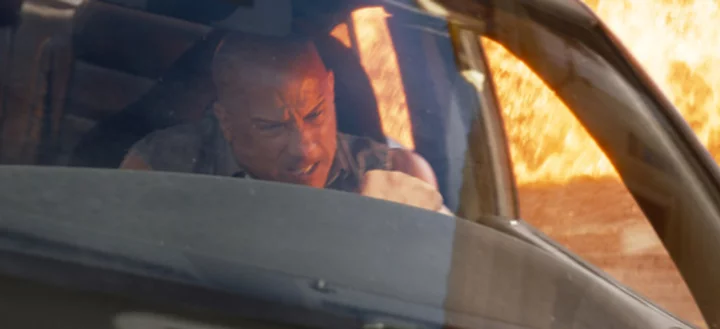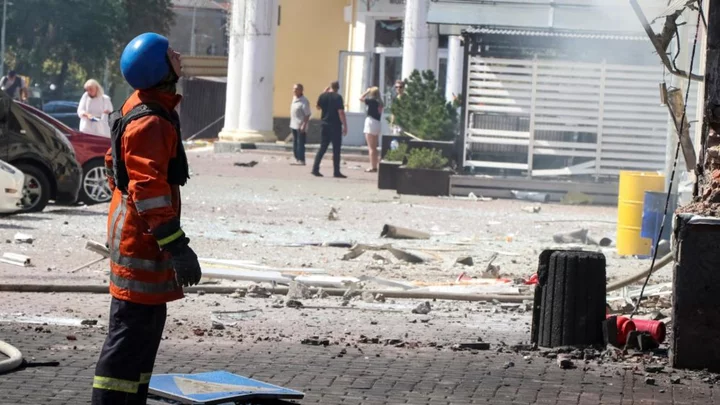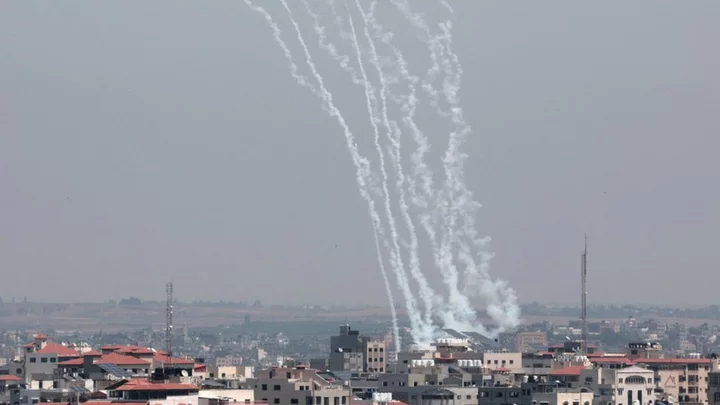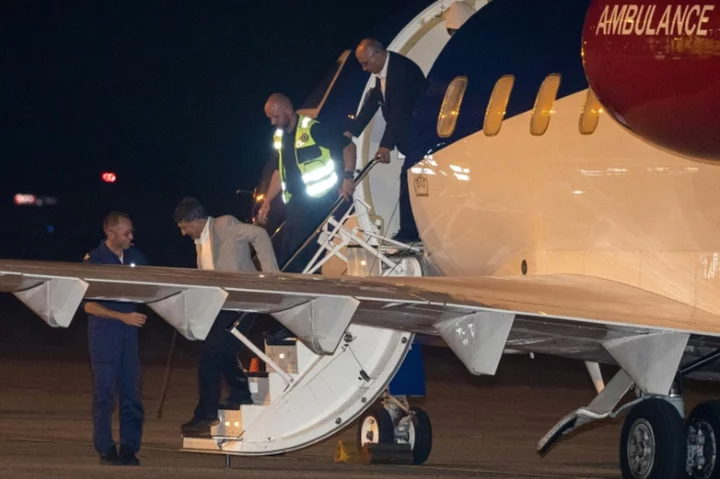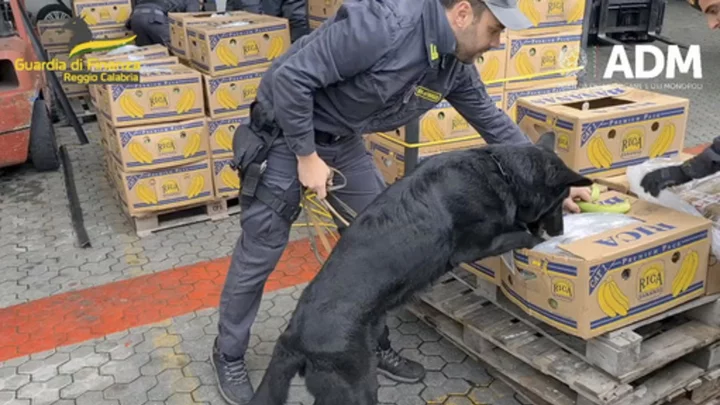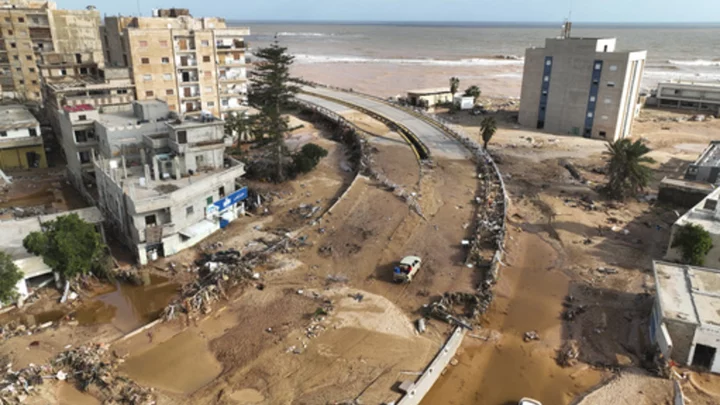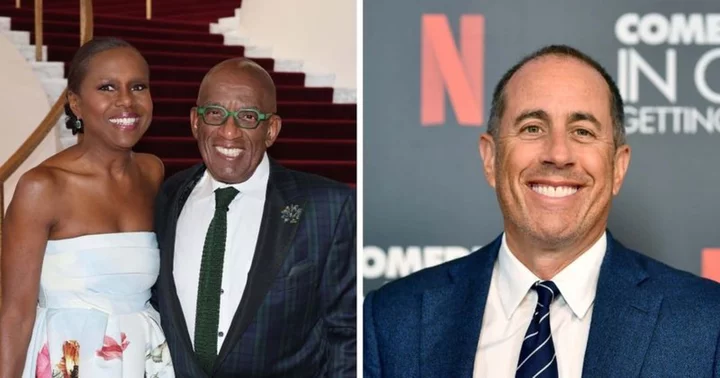LAS VEGAS (AP) —
A casino employee who has worked in gaming for nearly 40 years testified on Tuesday that she was never more afraid for her life than when she came face to face with a masked robber in February 2022.
Federal prosecutors have identified the man behind the mask as Las Vegas police officer Caleb Rogers, who is on trial this week for a trio of casino heists. Authorities have said Rogers, 35, was addicted to gambling and struggling with snowballing debts when he allegedly stole nearly $165,000 in robberies targeting casinos off the Las Vegas Strip.
“All I kept thinking in my head was: I could die today,” said Sherry McGrath, who was supervising the Rio All-Suite Hotel & Casino’s sportsbook when, according to authorities, Rogers stormed the registers while armed with a weapon issued by the police department.
Dressed in a gray suit with his hair pulled back into a low bun, Rogers showed no emotion as McGrath and three more Rio hotel-casino employees described that morning as the “worst” and “scariest” day of their careers.
At the time of the heists, Rogers was employed by the Las Vegas Metropolitan Police Department as an active-duty patrol officer. A department spokesperson said last week that Rogers has been on unpaid leave “without police powers,” pending the outcome of the trial, which began Monday and is expected to last through the end of the week.
Rogers' attorney, Richard Pocker, has said the government’s evidence in the two robberies before the heist at the Rio is weak. In his opening statement Tuesday, he asked the jury to give less weight to what he called “so what?” evidence, like the color of the vehicles used in the robberies. These are “minor details which aren’t as conclusive as the government would like,” he said.
On the stand, McGrath said she and her coworker, 63-year-old Priscilla Dougherty, were getting ready to open the sportsbook when a man in dark clothing jumped behind the counter, announcing he had a gun. She said he grabbed Dougherty by the shoulders “and threw her down" to the floor.
When McGrath crouched over to check on her coworker, the robber told them guarding the casino's money wasn't “worth losing your life over.”
To demonstrate for the courtroom how she reacted to the threat, McGrath threw her hands into the air and leaned back into her chair.
“I wouldn't want to take a chance," she said. “I'm not gonna question it.”
Prosecutors also played a series of surveillance videos captured by security cameras at the casino that showed the suspect shoveling money into his jacket before climbing back over the sportsbook's counter and running. In his trail, he left behind a pile of loose bills that had fallen to the casino floor, the videos showed.
Just past the casino's exit, security guard Touleisu Poutasi tackled the suspect, sending the robber's hat and a wig he'd been wearing flying off his head. Once on the ground, Poutasi said Tuesday, the suspect reached for a silver revolver holstered to his hip.
“Are you willing to die over this?" Poutasi recalled the suspect yelling as more security guards arrived, piling on top of the robber in a fight for control of the weapon. "I will shoot you!”
None of the security guards were armed when they confronted Rogers, prosecutors said.
When Tommy Baker joined the pile, he said he saw the suspect's hand on the weapon and his finger around the trigger.
Now, in the courtroom, prosecutors were handing Baker the silver revolver they said Rogers used that morning. On the stand, Baker gripped the barrel of the weapon and showed the jury how he pressed his thumb against the hammer, hoping to keep the gun from going off. Eventually, he said, he was able to peel the revolver away.
Soon after the robbery, Baker began looking for a new job outside of security work. He said he couldn't stop thinking about how his entire life could have changed in a split-second had he not been able to pry the gun out of the robber's hand. How he might not have made it home to his family that day. How he had to fight for much more than just the gun during that brief struggle.
He was fighting for his life, he said. "And my coworkers’ lives.”


